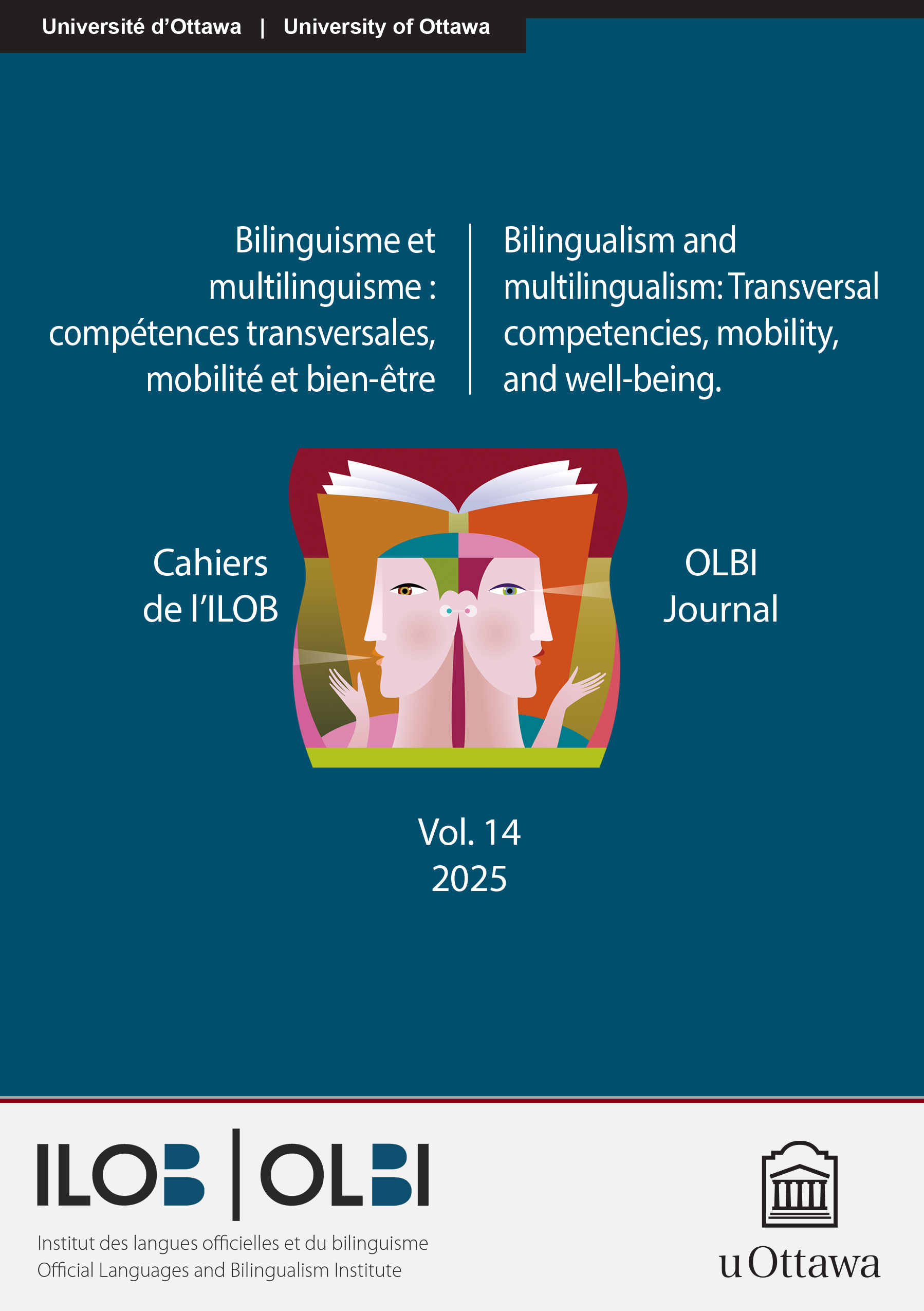Bilingualism and multilingualism: Transversal competencies, mobility, and well-being.
Introduction
DOI:
https://doi.org/10.18192/olbij.v14i1.7312References
De Houwer, A. (2020). Harmonious bilingualism: Well-being for families in bilingual settings. In A.C. Schalley & S.A. Eisenchlas (Eds.), Handbook of home language maintenance and development: Social and affective factors (pp. 63–83). De Gruyter Mouton. https://doi.org/10.1515/9781501510175-004
European Centre for Modern Languages. (2022). Transversal competences in foreign language education. ECML think tank, 8–9 February 2022. Report. https://bit.ly/ECML-Transversal-competences-EN
Macianskiene, N. (2016). Development of transversal skills in content and language integrated learning classes. European Scientific Journal, ESJ, 12(1), 129. https://doi.org/10.19044/esj.2016.v12n1p129
MacIntyre, P.D., Gregersen, T., & Mercer, S. (2019). Setting an agenda for positive psychology in SLA: Theory, practice, and research. The Modern Language Journal, 103(1), 262–274. https://doi.org/10.1111/modl.12544
Oxford, R.L. (2016). Toward a psychology of well-being for language learners: The “EMPATHICS” vision. In P.D. MacIntyre, T. Gregersen, & S. Mercer (Eds.), Positive psychology in SLA (pp. 10–87). Multilingual Matters. https://doi.org/10.21832/9781783095360-003
Seligman, M.E.P., & Csikszentmihalyi, M. (2000). Positive psychology: An introduction. American Psychologist, 55(1), 5–14. https://doi.org/10.1037/0003-066X.55.1.5
Stavans, A., & Hoffmann, C. (2015). Multilingualism. Cambridge University Press. UNESCO. (2020). Transversal skills in TVET: Policy implications. https://unesdoc.unesco.org/ark:/48223/pf0000234738
Voogt, J., & Roblin, N.P. (2012). A comparative analysis of international frameworks for 21st century competences: Implications for national curriculum policies. Journal of Curriculum Studies, 44(3), 299–321. https://doi.org/10.1080/00220272.2012.668938
Downloads
Published
Issue
Section
License
Copyright (c) 2025 Nikolay Slavkov, Nina Woll, Caroline Dault, Pierre-Luc Paquet, Laura Ambrosio

This work is licensed under a Creative Commons Attribution 4.0 International License.
Authors who publish with OLBI Journal agree to the following terms:
- Authors retain copyright and grant the OLBI Journal (OLBIJ) right of first publication with the work simultaneously licensed under a Creative Commons Attribution License that allows others to share the work with an acknowledgement of the work's authorship and initial publication in the OLBIJ.
- Authors are able to enter into separate, additional contractual arrangements for the non-exclusive distribution of the OLBIJ's published version of the work (e.g., post it to an institutional repository or publish it in a book), with an acknowledgement of its initial publication in the OLBIJ.
- Authors will not simultaneously submit the same piece of work for possible publication to more than one academic journal at a time.


